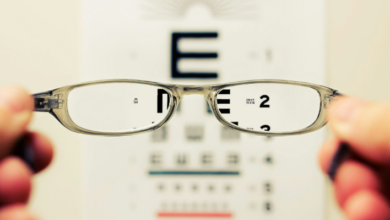
Understanding the PBS Doctor Bag in Australia
The Pharmaceutical Benefits Scheme (PBS) Doctor Bag in Australia plays a crucial role in ensuring that general practitioners (GPs) and medical professionals can provide timely, lifesaving medications in urgent and emergency situations. This system is part of the broader PBS framework, a government initiative aimed at making essential medicines more affordable and accessible to Australians.
The PBS Doctor Bag is not just a convenient tool for medical practitioners; it is a vital component of Australia’s healthcare infrastructure. By facilitating immediate access to critical medicines, it contributes to saving lives, improving patient outcomes, and reducing the burden on hospital emergency services.
What is the PBS Doctor Bag?
The PBS Doctor Bag is a collection of essential medicines made available to registered medical practitioners for use in emergency or after-hours situations. It ensures that GPs can promptly administer treatments or stabilize patients when immediate access to a pharmacy is not possible.
The medicines in the PBS Doctor Bag are supplied free of charge to doctors, emphasizing the Australian government’s commitment to public health and emergency preparedness.
Key Features of the PBS Doctor Bag
- Emergency Focus: The doctor bag includes a selection of medicines designed for acute situations, such as severe infections, allergic reactions, or chronic disease exacerbations.
- Comprehensive Coverage: From antibiotics and pain relievers to injectable treatments for anaphylaxis and asthma, the PBS Doctor Bag is stocked with a wide range of essential drugs.
- Accessibility: Available to all registered medical practitioners across Australia, ensuring equitable healthcare delivery even in rural and remote areas.
Importance of the PBS Doctor Bag
The PBS Doctor Bag serves multiple purposes in Australia’s healthcare system, making it indispensable for medical practitioners and patients alike.
1. Immediate Response to Emergencies
In medical emergencies, timely intervention is critical. Whether it’s managing an acute asthma attack or providing antibiotics for a severe infection, the PBS Doctor Bag ensures doctors can act promptly without waiting for pharmacy access.
2. Rural and Remote Healthcare
In rural and remote areas of Australia, where access to pharmacies can be limited or non-existent, the PBS Doctor Bag is particularly valuable. It bridges the gap, ensuring that patients in these regions receive timely care.
3. Enhancing After-Hours Care
After-hours medical services often cater to patients when pharmacies are closed. The PBS Doctor Bag allows doctors to provide necessary treatments without delay, improving patient outcomes and reducing complications.
4. Reducing Emergency Department Visits
By equipping doctors with the tools to handle acute situations in their clinics or during home visits, the PBS Doctor Bag helps alleviate pressure on hospital emergency departments.
How to Access the PBS Doctor Bag
Medical practitioners in Australia can access the PBS Doctor Bag through authorized suppliers. To qualify, doctors must:
- Be registered with the Medical Board of Australia.
- Hold a Medicare provider number.
- Submit requests for PBS Doctor Bag supplies as needed.
The PBS website provides detailed information on the medicines available under this scheme, ensuring transparency and ease of access for practitioners.
What Medicines Are Included?
The contents of the PBS Doctor Bag are carefully curated to address common medical emergencies. Some examples include:
- Antibiotics: For bacterial infections.
- Adrenaline (Epinephrine): For severe allergic reactions.
- Salbutamol: For asthma and other respiratory conditions.
- Pain Relievers: For acute pain management.
- Anticonvulsants: For seizure control.
This selection is regularly reviewed and updated to align with current medical practices and emerging healthcare needs.
Challenges and Considerations
While the PBS Doctor Bag is a vital resource, it comes with certain challenges and limitations:
1. Stock Management
Doctors must ensure that the medicines in their PBS Doctor Bag are stored correctly and replenished as needed. Expired or unavailable medications can compromise patient care.
2. Limited Scope
Although comprehensive, the PBS Doctor Bag cannot include every possible medication. Doctors may need to refer patients to pharmacies or hospitals for less common treatments.
3. Training and Awareness
Medical practitioners need to be well-versed in using the PBS Doctor Bag effectively, particularly in high-pressure emergency situations.
4. Accessibility in Remote Areas
Despite the PBS Doctor Bag’s aim to support rural healthcare, logistical challenges can sometimes delay the delivery of medicines to remote regions.
The Future of the PBS Doctor Bag
The PBS Doctor Bag continues to evolve as Australia’s healthcare landscape changes. Innovations in telehealth, advancements in medicine, and improved supply chain management are shaping the future of this critical resource.
- Digital Integration: Electronic prescribing and digital records could streamline the replenishment process, ensuring that doctors always have access to the medicines they need.
- Expanded Contents: As new medications are developed, the range of medicines in the PBS Doctor Bag may grow to include treatments for emerging health concerns.
- Improved Rural Access: Enhanced logistics and partnerships with regional healthcare providers could make the PBS Doctor Bag even more effective in remote areas.
Conclusion
The PBS Doctor Bag is a cornerstone of emergency healthcare in Australia, reflecting the government’s commitment to providing equitable and timely medical care. It empowers doctors to respond to emergencies effectively, particularly in rural and after-hours settings.
By supporting medical practitioners with essential medicines, the PBS Doctor Bag not only saves lives but also strengthens the overall healthcare system. As Australia continues to invest in innovation and accessibility, this initiative will remain a vital part of ensuring the health and well-being of its citizens.



